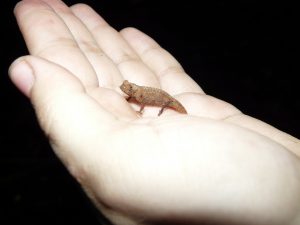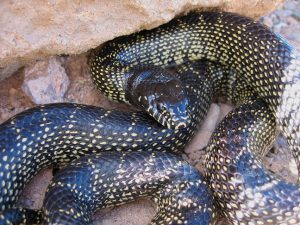Main Content
Reptile Shows!!! How cool would it be to go see lots of different reptiles and amphibians in one location? Talk with breeders? Interact with other reptile enthusiasts? With the many shows in the area, you can do just that.
But, as a herpetological enthusiast and potential owner, you should be responsible in your visits and potential purchases. Here is what you should know before going….
- Are you talking with the breeder? That animal had to come from somewhere. So the seller is either a breeder, or has purchased the animal from a breeder, or has imported the animal. Imported animals are stressed, and possibly here under illegal circumstances. So it is always best to purchase your animal from a reputable breeder.
- What is the history of the animal? A breeder should be able to tell you not just the age of the animal, but the genetic history of the animal, about the parents, where they came from, etc.
- Under what conditions has this animal been living? Ask about the breeding facility. What methods do they use? How do they feed and take care of the animal? What do they do for sick or stressed animals?
- Is this animal healthy? What do they look for? What about ticks, mites, and other parasites?
- Is this animal legal to keep in your state? Know that information BEFORE purchasing anything.
- Are you sure you want this animal? If you don’t, what happens next? They cannot be released into the wild as it will affect the ecosystem – and quite possibly kill the animal.
- Don’t only consider the animal’s size/requirement now! Many reptiles get quite large as adults and babies are cheap and plentiful at shows. A baby Nile monitor lizard may seem easy to keep now, but what will you do with it once it is a 7 foot long, aggressive adult that is hard to handle? It is easy to feed rats to a baby Burmese python, but are you prepared to feed it large rabbits or small pigs when it is 16 feet long and will be alive for the next 20+ years? Can you afford to? The long-term needs of any animal purchase need to be considered (adult size, feeding requirements, lifespan), not just the immediate needs.
- Do not make an impulse purchase! If you see an interesting animal you weren’t previously aware of that you think you are interested in purchasing, go home and do your own research first and plan to purchase later as an informed buyer.
- Is everyone in your household okay with you keeping this animal as a pet? Don’t buy something hoping your parents will be okay with it…it’s better to know what is acceptable and what isn’t before bringing the herp home.
Consider this-if an animal you are interested in is not captive bred and is not readily available to buy captive bred and only from wild imports, why do you think that is? Typically it is because it is a herp that is very difficult to keep alive in captivity due to being easily stressed or requiring very specific conditions or diets that are difficult to provide for the average hobbyist (e.g., a brackish water snake that only eats soft-shelled crabs). It may also be because it simply makes a very poor pet (unhappy in a small enclosure and constantly trying to escape, bites readily) so there is little demand for them. Remember, people selling these animals are doing this as a business and are concerned about making a sale, sometimes at the expense of the animal’s life, so be very skeptical and ask a lot of questions! When in doubt, walk away!
For more information about making yourself a savvy consumer go to:
https://www.goherping.com/single-post/5-reasons-you-should-not-keep-wild-caught-reptiles
http://www.reptilesmagazine.com/Looking-for-a-Pet-Reptile-Consider-a-Breeder/
https://www.animallaw.info/article/detailed-discussion-international-trade-wild-caught-reptiles
For more information about herpetology shows visit:
http://reptileshows.mobi/by_state.php?state=PA
http://reptileexpo.com/index.html


By:
Sara Ruane, PhD, Assistant Professor,Department of Biological Sciences, Rutgers University-Newark
Lisa Rothenburger, County 4-H Agent, Rutgers Cooperative Extension